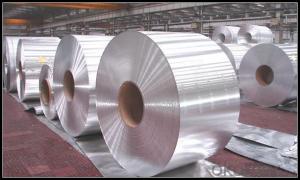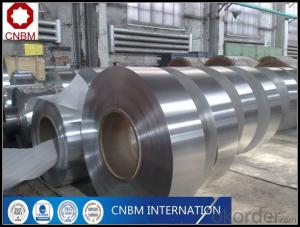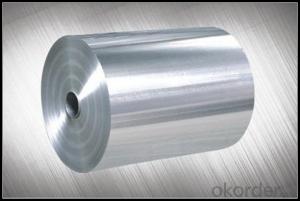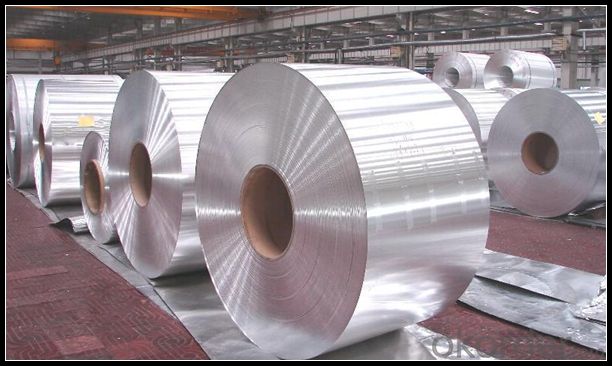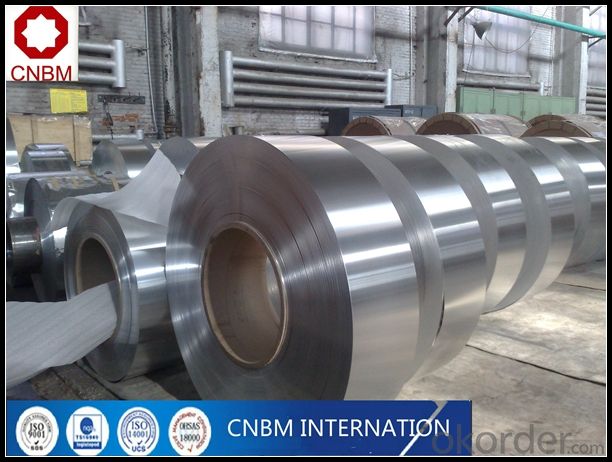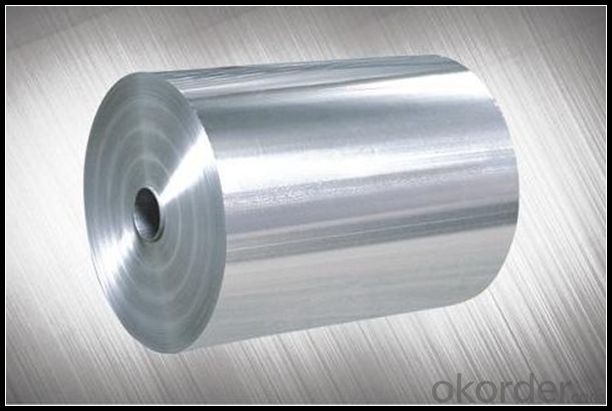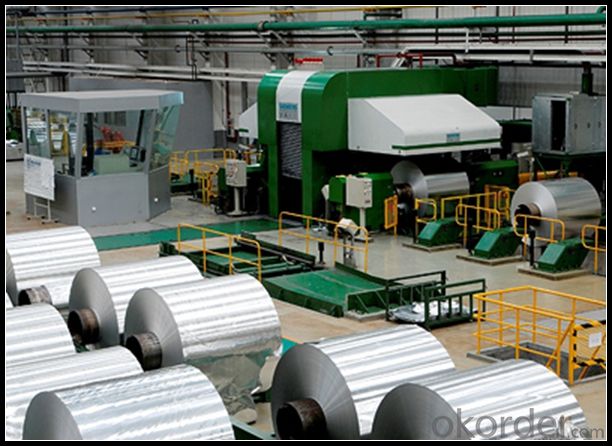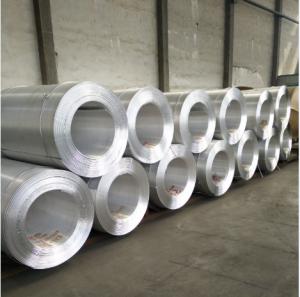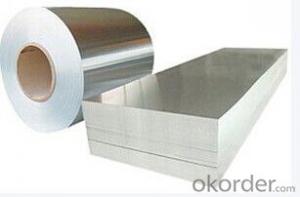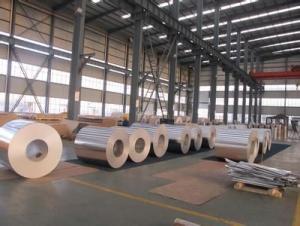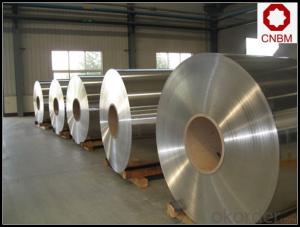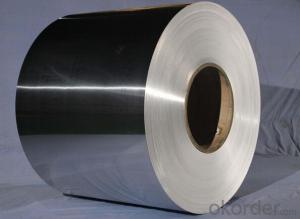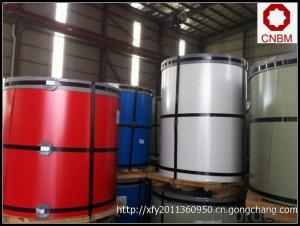3105 Aluminum Coil Manufacture - High Quality Aluminum Coil/ Aluminum Sheet from China
- Loading Port:
- Tianjin
- Payment Terms:
- TT OR LC
- Min Order Qty:
- 6 m.t.
- Supply Capability:
- 3000 m.t./month
OKorder Service Pledge
OKorder Financial Service
You Might Also Like
Specification
1. Specification of Aluminum Coil
1) Alloy | AA1050, AA1060, AA1070, AA1100, AA3003, AA3004, AA3105, AA5005, AA5052, AA8011, AA8079 etc |
2) Temper | O/H12/H14/H1/H18/H32/H34/H36/H38/T6/T651/T3/T351 etc |
3) Thickness | 0.1mm to 6mm |
4) Width | 20mm to 3300mm |
5) Coil weight | 100kgs to 6 tons depends on actual requirement |
6) Core material | Aluminum |
7) Coil Inner diameter | 76mm, 152mm, or as required |
2. Application of Aluminum Coil
(1).Interior: wall cladding, ceilings, bathrooms, kitchens and balconies, shutters, doors...
(2).Exterior: wall cladding, facades, roofing, canopies, tunnels,column covers , renovations...
(3).Advertisement: display platforms, signboards, fascia, shop fronts.
3. Feature of Aluminum Coil
*Such coil is specially designed to replace aluminum ingot, due to the high export tax of aluminum ingot, the coil has better price than ingot.
*This type of coil can fit customer's remelting furnace just like ingot, no need to make any change to the production line that was previously used for ingot. The standard coil size and weight is very suitable for the feed gate of furnace.
*This type of coil causes less material wastage than ingot when remelted.
*Our coil is made directly from ore, no need to go though the ingot making process, quality is much better than other suppliers who use ingot scrap to make coil.
Be free from Oil Stain, Dent, Inclusion, Scratches, Stain, Oxide Dicoloration, Breaks, Corrosion, Roll Marks, Dirt Streaks and other defect which will interfere with use
4. Certificate:
SGS and ROHS(if client request, paid by client), MTC(plant provided), Certificate of Origin(FORM A, FORM E, CO), Bureau Veritas and SGS (if client request, paid by client), CIQS certificate
5. Image of Aluminum Coil
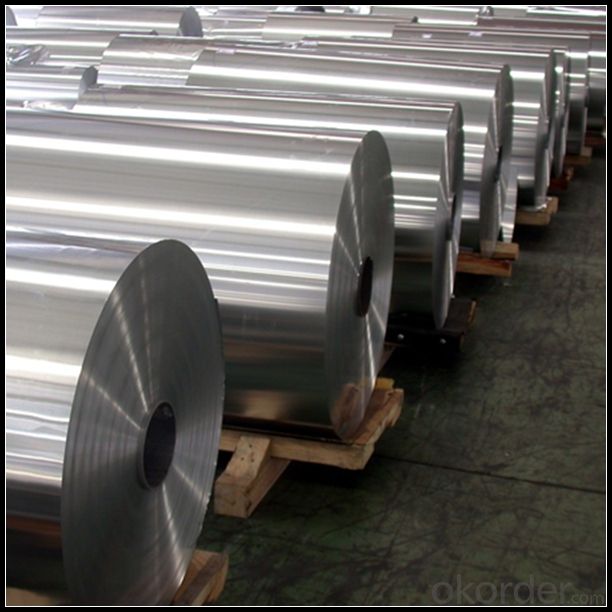
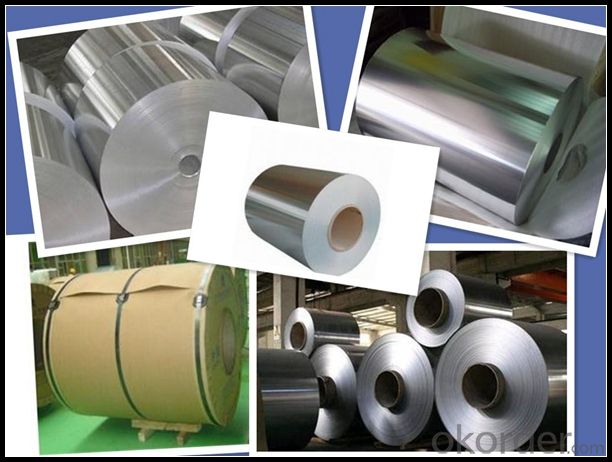
6. About Our Company
CNBM International Corp., established in 2004, is the business entity for trade and logistic of CNBM Group.
CNBM International is highly recognized by its business partners and clients all over the world and has established good business relationship with the customers in over 160 countries and regions all over the world.
7. FAQ
1) What is the delivery time?
Dpends on actual order, around 30 to 35 days
2)What is the QC system:
We have QC staff of 20 persons and advanced equipment, each production is with MTC traced from Aluminum ingot lot.
3) What market do you mainly sell to?
Australia, America, Asia, Middle East, Western Europe, Africa etc
4)What are your payment terms?
We accept L/C, D/A, D/P, T/T, West Union,etc.
- Q: Why is the aluminum roll upset?
- Mainly in the aluminum slitting process, for various reasons, does not meet the standards and specifications of products, can be used to roll the machine from the new trimming and slitting, winding up to meet customer needs of product specifications
- Q: Is anodized aluminum suitable for indefinite salt-water exposure or will it rust? Also note that it would be used for the hull of a boat (more like a platform), and if it is not suitable could you suggest another metal?
- Aluminum would be an ideal material stainless steel a better one, aluminum does not rust it deteriorates to electrolite when in contact with salt water and a magnetic or ferrus metal. Therefore as long as your boat is fitted with salt water anodes it should create no problems if not it will deteriorate rapidly in salt water. All powered salt water craft/vessels carry anodes ie there is an anode fitted to the aluminum drive leg of an outboard or Z drive if intended for salt water use, On larger ships the anodes are normally fixed to the rudder blade so equip your platform the same. Zink anodes are cheap and available at every salt water chandlers. You should also use non ferrus bolts and screws to screw your construction together with, or to fix it to the hull, or better make a set of jigs to suit shape size and then get it TIG welded never mix ferrus and non ferrus metals in the presence of salt water without a zink anode, the damage is rapid and attacks the structure of the non ferrus metal creating an electric field and destroying the weakest current catalyst ie the aluminum itself. The non ferrus metals that in general maritime use that are are not so much effected by salt water are phosphor bronze, brass,and copper.Non of these would be suitable for making your platform, therefore aluminum. If weight is not a problem though i would recommend a middle grade stainless steel such as se 80 or around that grade, And again it would be better to be TIG welded than bolted together, bolts are subject to movement (especially at sea) and therefore hole enlargement. As are safety standard pop rivets.
- Q: Aluminum reacts with water so why is it used in buildings and cooking??Some help by today would be good!! :DThanxx
- Aluminum reacts with water under certain conditions, but cookware does not usually present any of those conditions. Aluminum cookware takes advantage of the oxidizing process, which creates a natural protective layer over the aluminum. It doesn't react with water in the same way that chemical equations say it will because cooking surfaces are designed to maximize the oxidation effect. This is basically the same reason why aluminum foil doesn't react in water. In building materials, it's less about exposure to the elements and more about how cheap and lightweight it is. Many building materials are aluminum alloys, which makes them more susceptible to corrosion than purer aluminum, and the use of aluminium roofing material, though fairly corrosion-resistant by itself (for the same reasons as cookware), gets compromised by the proximity of other metals used in construction, like non-stainless steel nails and screws, for example, or copper pipes without insulation. The trade-off is that aluminium alloys hold their shape better and have greater tensile strength, some of which approach that of steel.
- Q: How much is the 25mm aluminum coil at current market?
- You must mean 25-wide aluminum coil. The price consists of the aluminum ingot price and processing charges. For example, if the processing price is 4500 yuan, it is relatively cheap. 25mm-wide aluminum coil is very narrow, so it will be much complicated to strip.
- Q: Can aluminum coils be used in marine environments?
- Yes, aluminum coils can be used in marine environments. Aluminum is widely used in marine applications due to its excellent corrosion resistance properties. It forms a protective oxide layer that prevents further oxidation and corrosion, making it suitable for various marine equipment and structures.
- Q: What specific conditions or criteria must be met when utilizing aluminum coils?
- <p>There are several special requirements for using aluminum coils. They should be stored in a dry and clean environment to prevent corrosion. The coils must be handled carefully to avoid scratches or dents that could affect their performance. When used in manufacturing, the specific alloy type and temper of the aluminum coil must be considered as they influence properties like strength and malleability. Additionally, the thickness and width of the coil should match the requirements of the application to ensure proper fit and functionality. Adherence to safety standards during the handling and processing of aluminum coils is also crucial to prevent accidents and ensure quality control.</p>
- Q: Can aluminum coils be used in the production of transportation vehicles?
- Indeed, the utilization of aluminum coils is feasible in the manufacturing process of transportation vehicles. Due to its lightweight nature and resistance to corrosion, aluminum has garnered significant favor within the automotive sector. The superior strength-to-weight ratio it possesses aids in enhancing fuel efficiency, decreasing emissions, and elevating the overall performance of vehicles. The versatility of aluminum coils allows for their application in the production of diverse components including body panels, frames, chassis, and suspension parts. Furthermore, the environmentally conscious attribute of aluminum lies in its recyclability, thereby bolstering the sustainability of the transportation industry.
- Q: I need ideas on soundproofing a 12' aluminum fishing boat?
- Boat Soundproofing
- Q: Can aluminum coils be used in automotive heat shields?
- Yes, aluminum coils can be used in automotive heat shields. Aluminum is a commonly used material in the manufacturing of heat shields due to its excellent heat resistance and lightweight properties. Aluminum coils can be formed and shaped into the desired design, allowing for easy installation and customization in automotive applications. Additionally, aluminum has high thermal conductivity, which helps to dissipate heat effectively, making it an ideal choice for heat shields in vehicles.
- Q: How do aluminum coils contribute to reduced carbon emissions?
- There are several ways in which aluminum coils help reduce carbon emissions. To begin with, aluminum is a lightweight material, unlike other metals such as steel. This means that less energy is needed to transport and handle aluminum coils. The reduced weight leads to lower fuel consumption during transportation, ultimately resulting in decreased carbon emissions. Moreover, the production of aluminum coils requires significantly less energy compared to other metals. Aluminum is highly recyclable and can be melted down and reused without losing its original properties. This recycling process only requires a fraction of the energy needed to produce aluminum from raw materials, resulting in reduced greenhouse gas emissions. In addition, aluminum coils have excellent thermal conductivity. This allows for improved energy efficiency in various applications. For instance, aluminum coils are commonly used in HVAC systems, where they help transfer heat more effectively. This reduces the energy required for heating or cooling, ultimately leading to lower carbon emissions. In summary, the lightweight nature of aluminum coils, their recyclability, and their improved energy efficiency all contribute to reduced carbon emissions. By utilizing aluminum coils in different industries, we can minimize environmental impact, conserve energy resources, and mitigate climate change.
Send your message to us
3105 Aluminum Coil Manufacture - High Quality Aluminum Coil/ Aluminum Sheet from China
- Loading Port:
- Tianjin
- Payment Terms:
- TT OR LC
- Min Order Qty:
- 6 m.t.
- Supply Capability:
- 3000 m.t./month
OKorder Service Pledge
OKorder Financial Service
Similar products
Hot products
Hot Searches
Related keywords
